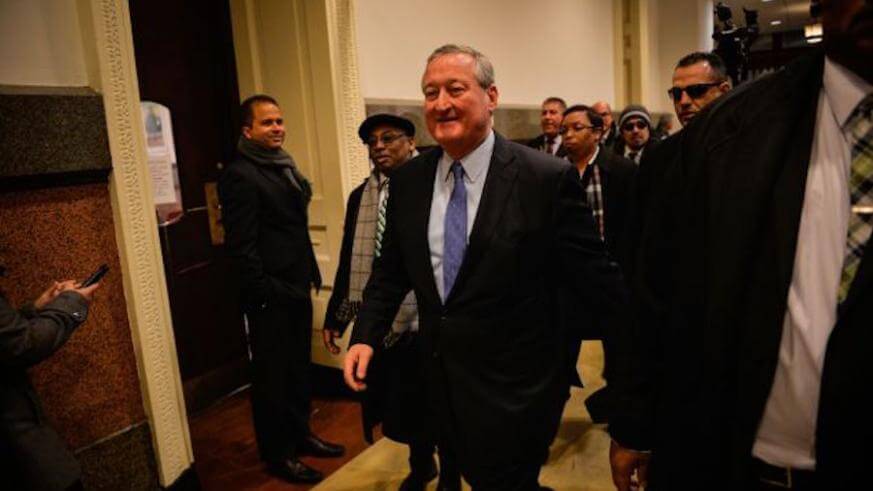For 16 years, the state School Reform Commission, which governs Philly schools and their budgets, has overseen the education of the city’s youth.
On Thursday, Mayor Jim Kenney announced in no uncertain terms that that had been far long enough.
Due to factors outside its control, the District is facing a deficit which begins next year and will grow to nearly $1 billion over the next five years.
“I am unwilling to sacrifice the hard-won progress of our students and go back to the days of classrooms without teachers and schools without counselors or nurses,” Mayor Jim Kenney said at a speech on Thursday morning in which he called on the School Reform Commission (SRC) to vote themselves out of existence at their coming Nov. 16 meeting and move toward creating a local school board appointed by the mayor.
While that vote would require a further series of hearings to determine how best to transition control of schools from the state to the city, Kenney said the city could improve efficiency and increase spending on city schools, which, he said, under current plans, are headed to a $1 billion deficit.
“By moving toward local control, the city of Philadelphia is taking some ownership of unwise management decisions over which we had no say,” said City Council President Darrell Clarke. “Philly students have ultimately suffered the consequences of years of uneven, at times chaotic, management. That is morally wrong and must come to an end.”
The legislative process formally began Thursday when City Council Education Committee Chair Jannie Blackwell introduced a resolution at City Council to begin transitioning schools to local control. If the council approves it and the Mayor signs it, Philly voters will vote in the May 2018 primary on whether to re-authorize the Philadelphia Board of Education, although the state government also must agree to dissolve the SRC.
SRC members don’t seem to oppose the plan. Chair Joyce Wilkerson said the commission was meant to be “atemporaryform ofgovernance” and noted that the district now has a”balanced budget [and] strong leadership.”
“As a result of this progress and stability, we have the opportunity to reexamine the governance structure including the restoration of local control,” Wilkerson said. “It is time for Philadelphia to take ownership of that future.”
In recent years, the school district has seen 24 schools closed and nearly 4,000 employees laid off. Philly Federation of Teachers President Jerry Jordan called Kenney’s announcement “a huge step toward ending what has been a long, failed experiment in state control of public schools.”
“Act 46, the legislation that created the SRC, also paved the way for privatization, exploding deficits, mass layoffs, school closings and the [ultimately failed] attempt to cancel the PFT contract,” Jordan sid.
But in the meantime, Philly schools are just going to keep operating as usual, Superintendent William Hite said.
“Our priorities remain the same,” Hite said. “We are focused on our early literacy efforts, preparing students for college and career, recruiting and retaining great talent, and maintaining financial stability. Our work will make sure that all students in Philadelphia have a great school close to where they live.”



























